I tend to be a purist when it comes to film adaptations of books that I’ve read and liked, but if it is the reverse, I’m not as picky. I’m wary of having adaptations destroy what I’d already imagined and liked during reading, which has happened before due to the choice of cast and how actors/directors interpret the novel in question. This could happen regardless of whether the adaptation is in the same language/culture as the source material. Fortunately, that was not the case with Orient Kyuukou Satsujin Jiken.
During the early days of the Showa era, famous detective Suguro Takeru (Nomura Mansai) boards the Tokubetsu Kyuukou Toyo departing from Shimonoseki to Tokyo. Despite the train being fully booked at an unlikely time of the year, he manages to avail himself of a first-class private compartment. Halfway through the journey, the train is stranded due to a snowdrift and a murder has also occurred. Suguro is asked to investigate…
When I first read that Tamaki Hiroshi would be part of the star-studded cast for Orient Kyuukou, I went and bought the original Agatha Christie novel, Murder on the Orient Express, on which this adaptation was based. I like whodunnits and enjoyed the novel as a whole, although it did require a few leaps of imagination. The original story had Hercules Poirot, a familiar detective character in many Christie stories, investigate a murder that happened on the Orient Express train that was travelling to London. As the murder happened while the train was stuck in a snowdrift, it means none of the passengers was able to get off and Poirot has to figure out which of them is the murderer. He realises that all the passengers on the Orient Express are connected in one way or another to an old case about the kidnap and murder of a three-year-old heiress – the dead victim on the Orient Express was actually behind the kidnap and murder of the young girl, and the other passengers killed him as a way of exacting justice jury-style.
Interestingly the SP, which was filmed to commemorate FujiTV’s 55th anniversary, is made up of two parts – the first corresponds to Christie’s novel, but the second is the backstory woven entirely by scriptwriter Mitani Koki. As I watched, I was surprised by just how closely adapted the first part of the SP was. The names and location were changed, of course, and a few local quirks were added in, but it was pretty much how the novel would have played out. I haven’t seen previous adaptations of this novel (there were a number), but I imagine Suguro is a younger, more comical version of Poirot. Certainly, Nomura Mansai seemed rather exaggerated in his portrayal of Suguro, but he brought a bit of levity to an otherwise serious production, so it was all good. I also liked the little CGI effect where a train compartment image popped up and the room number highlighted whenever a passenger was questioned – it gave the audience an idea of which compartment this particular passenger was in at the time the murder occurred.
Part 2 was about how the passengers had waited and plotted how to get rid of KasaKen (Sato Koichi), the victim who also masterminded the kidnap and murder of the young daughter of Colonel Goriki. Most of the brains behind the operation were the governess Baba Maiko (Matsushima Nanako) and Colonel Noto Iwao (Sawamura Ikki), who not only helped roped in reinforcements but kept tempers at bay as the rest of the gang chafed at the long waiting period to exacting revenge. Others such as Makuuchi Heita (Ninomiya Kazunari) helped in no small way by getting into positions that allowed them to monitor KasaKen’s movements – for example, Makuuchi was KasaKen’s secretary, while Masuda Etsuo (Kobayashi Takashi) was KasaKen’s butler. It was very nice seeing Matsushima Nanako again and I thought she was excellent as Baba Maiko. It was kind of an eye-opener how both she and Colonel Noto plotted and assigned everyone else roles to play, and the battle of wits between her and Suguro. Sawamura Ikki had a quiet but imposing manner as Colonel Noto, who was always calm and collected even under pressure. I was also happy to see Nishida Toshiyuki as the conductor Miki Buichi, since he’s a veteran actor I’d grown to like lately.
Tamaki Hiroshi’s role as Count Ando didn’t require many scenes, since the reasoning was that he should not be involved given his peerage and position as a diplomat. So he was often suspicious when his wife Namiko (Anne) fashioned excuses to be away from the house. He tailed her and finally chanced upon the entire gang during one of their discussions. As the Count loved his wife a lot and did not want her to be in danger, he proposed taking her place instead, but she ended up tagging along anyway. She didn’t take part in the stabbing, so it was 13 conspirators in all but 12 stabs. In the original novel, Count Ando was Count Andrenyi, who was described as a very handsome man, so I thought it was particularly fitting that Tamaki was chosen to play Count Ando. In fact, the casting was really well done all round – the actors suited their roles and there was not one actor whom I thought should have been replaced by someone else. The various ties the passengers had to the young heiress’ family were also kept intact and what developed in Part 2 was logical and properly accounted for what could have happened prior to the murder of KasaKen.
The high production values were evident and care was taken to make everything look and feel right given the setting of the story. The interior of the train was luxurious and had a first-class feel, which was awesome. I loved the styling of the characters – Tamaki was devastatingly handsome as the Count, and he and Anne made a very good-looking couple (she was elegant in a dark red dress in Part 1). Equally matching were Matsushima and Sawamura, and I thought the veteran actresses for Mrs Hatori (Fuji Sumiko) and the Marchioness (Kusabue Mitsuko) looked wonderfully regal and elegant. Mrs Hatori herself had a completely different vibe in Part 2. I nearly didn’t recognise Kichise Michiko in her turn as Namiko’s older sister Soneko, the mother of the dead child – she looked so beautiful and kind that it was no wonder Makuuchi had a crush on her and was ready to help avenge her family’s deaths. Also, earthcolors compiled a comprehensive list of things about the SP that will definitely enhance your enjoyment and understanding of it.
Overall, I have really enjoyed this adaptation of Murder on the Orient Express. Although the setting was in Japan rather than Europe and had its own cultural quirks, it preserved the spirit of the original novel, especially the first part of the SP. Part 2 was also very well done, and I could feel the director and scriptwriter tried hard to ensure the characters behaved in a way that would be logical and understandable given how the story had unfolded in Part 1. Acting was excellent and production was top-class. I can only hope more adaptations continue to preserve the spirit of the source material even as they make tweaks here and there to suit the different setting and type of medium.
junny@1.14am


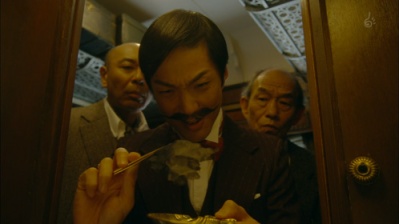
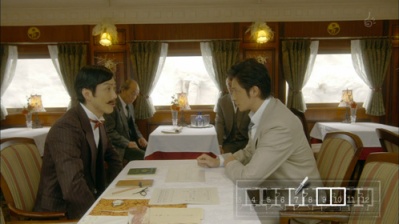
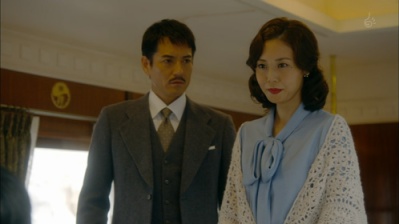
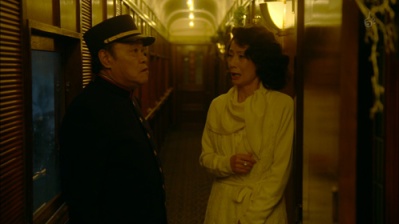
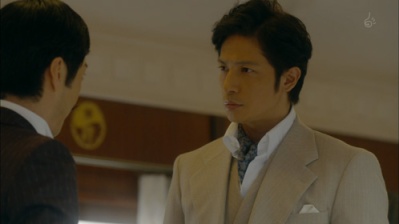
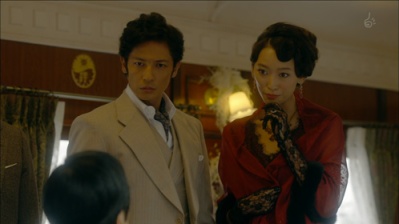
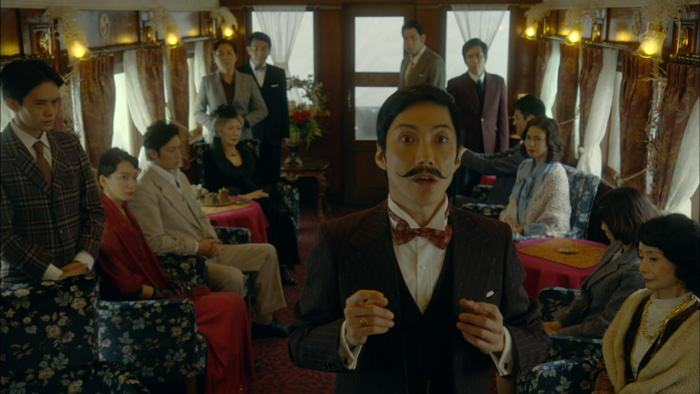
This SP has been on my to watch list for… for a long time, really. Thank you so much for your review! I’m always quite skeptical about any adaptation, but you cleared up all my doubts and I can’t wait to watch it when I have some free time on my hands. 🙂
LikeLike
I hope you enjoy it! I’ve been pleasantly surprised by it too, and have been rewatching bits of it (well, the Tamaki bits, to be specific XD ). There’s a lot of talking and the pace may seem slow, but overall it’s an excellent SP. Sorry the review wasn’t spoiler-free, hope that doesn’t dent your enjoyment of it.
LikeLike
This SP has been sitting on my hard drive for a while, I really need to get around to watching it at some point. Interesting how they set up the two parts, it sounds like it will be an interesting watch.
LikeLike
I really liked it and hope you will too 🙂 Kinda wish the entire team would do another Christie adaptation…
LikeLike